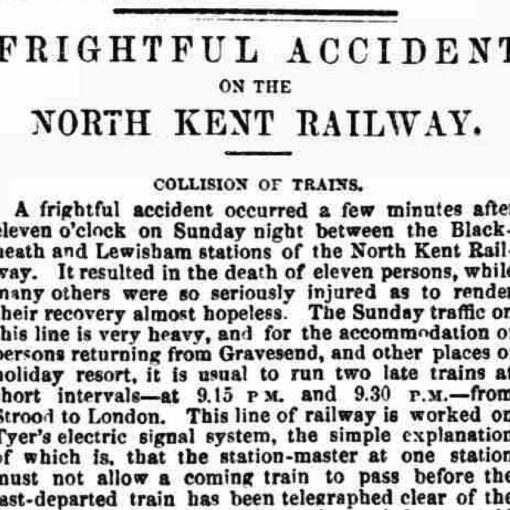Berkshire Chronicle – Saturday 03 September 1898
Continental Cottage Garden Society

The sixth annual show of vegetable marrows and sunflowers in connection with the above society was held on Saturday afternoon at the “Warwick Arms.” There was a large entry, and some very fine specimens were shown, though not quite up to the average, owing no doubt to the very dry season. The prizes ranged from 10s down to 1s, and special prizes were given by the proprietors of several well-known publications. In the evening all the members sat down to a capital supper provided by Mr. Sherval. After the removal of the cloth, the officers for the ensuing year were elected as follows: — Chairman, Mr. G. W. Bowsher; secretary, Mr. J. Bradbury; treasurer, A. W. Reeves; committee, Messrs. C. Day, A. Shipway, and E. Gray. A hearty vote of thanks to the retiring committee and other officers was proposed by Mr. W. Bloomfield and seconded by Mr. F. Clarke. This was carried unanimously. The chairman, Mr. G. W. Bowsher, then presented the prizes to the following winners:
Marrows:
- C. Day
- J. Maskell
- S. Chapman
- F. Clark
- A. Trinder
- F. Bernard
- T. Turner
- B. Fisher
- W. Heather
Sunflowers:
- S. Chapman
- A. Trinder
- J. Bradbury
- T. Turner
- G. Alleway
- C. Day
- E. Gray
- F. Clark
- B. Gray
- A. W. Reeves
- H. Race
The rest of the evening was spent in harmony. A capital programme of songs was gone through by Messrs. W. Thorp, S. Port, G. Alleway, F. Goddard, W. Heather, J. Russell, P. Aldridge, W. Taylor, W. Butler, and S. Chapman. Mr. J. Shepherdson was the able accompanist. The National Anthem concluded one of the most pleasant evenings ever spent by the club.
Analysis and Usefulness for Genealogists:
This article from the Berkshire Chronicle (dated 3 September 1898) provides a wealth of information that may be valuable to genealogists for several reasons:
- Names and Social Context:
- The article lists the names of prize winners, officers, and performers at the event. These names could serve as a link to family history for descendants researching their ancestors.
- For example, someone tracing “C. Day” or “S. Chapman” might find their ancestor mentioned here as an active member of their community in 1898.
- Community and Social Activities:
- The article gives insight into the cultural and social dynamics of the time, showing how leisure and community events like gardening societies were organized and celebrated.
- This provides context for understanding the lives of ancestors in terms of the hobbies, occupations, and social clubs they may have been involved in.
- Economic and Local Environment:
- The mention of a “very dry season” could tie into environmental or agricultural records of the time, helping genealogists understand the challenges faced by ancestors living in this era.
- Potential Links to Locations:
- The mention of the “Warwick Arms” as the venue may help in geographical research, connecting families to specific local landmarks or institutions.
- Cultural Details:
- The event culminates in a musical programme, which highlights the cultural importance of music and communal gatherings during this period.
- Clubs and Societies:
- Membership or involvement in a gardening society could indicate an interest or occupation in horticulture, a clue for genealogists exploring family traditions or professions.
Insights and British English Context:
This article, of the late 19th century, reflects the formal and respectful reporting style typical of the period. Phrases like “removal of the cloth” (indicating the end of a meal) and “spent in harmony” (suggesting camaraderie) are examples of period-appropriate expressions. Additionally, the details about prizes (in shillings) and the “National Anthem” highlight societal norms and values of the time.
The Berkshire Chronicle: A Legacy of Local Journalism

Founded in Woking in 1770, The Berkshire Chronicle stands as one of the enduring bastions of British local journalism. Originally established to serve as a trusted voice for its readers, the newspaper quickly became an integral part of Berkshire’s social and cultural fabric.
From 1891 to 1986, the Chronicle operated from its prominent offices on Valpy Street in Reading, a central location that anchored it firmly within the heart of the community it served. This move solidified its presence as a key publication for both rural and urban areas of Berkshire, offering news, opinion, and reports on everything from politics to local events.
A significant chapter in its history unfolded in 1914, when both the Reading Mercury—another venerable Berkshire publication—and the Chronicle came under the same ownership. This partnership marked a consolidation of resources and influence, allowing both newspapers to thrive through mutual support while retaining their unique editorial identities. Together, they chronicled the significant events of the 20th century, providing an invaluable record of the county’s history.
The Berkshire Chronicle not only delivered hard news but also focused on human-interest stories, such as local fairs, garden society gatherings, and civic accomplishments. Its archives now serve as an essential resource for historians and genealogists, capturing the voices and lives of generations past.
Though its operations ceased in the late 20th century, the Berkshire Chronicle remains a symbol of community journalism, offering a window into the daily lives, achievements, and challenges of Berkshire’s residents over more than two centuries.
Discover the rich history of the 1898 Continental Cottage Garden Society! 🌻🥒 From prize-winning marrows to community harmony at the Warwick Arms, explore the stories of local heritage. #Genealogy #HistoricalResearch #BerkshireHistory #LocalStories



